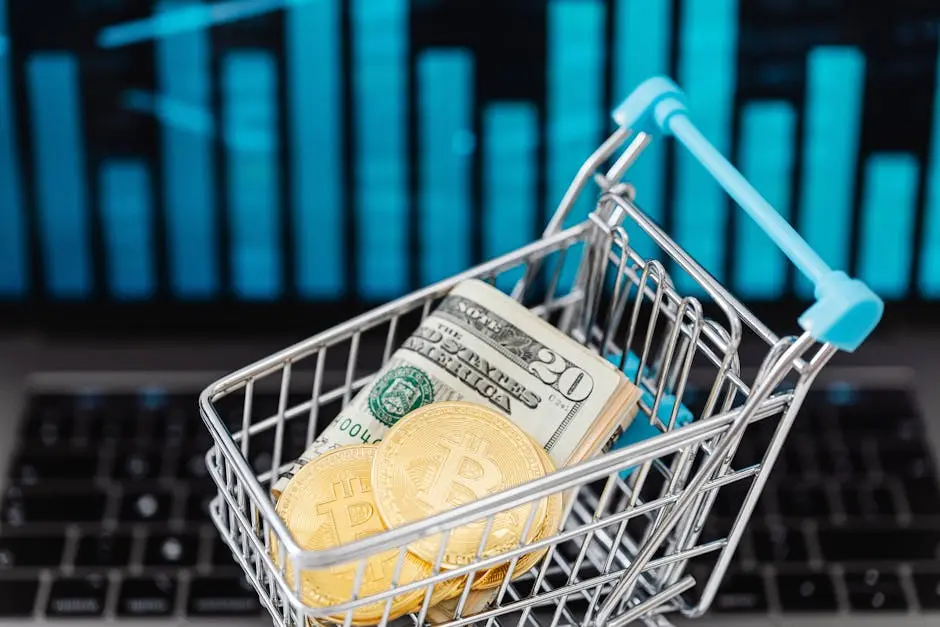In a world that is rapidly evolving technologically, understanding how we conduct financial transactions is crucial. Digital currency exchange represents a significant shift in the way we manage money, making transactions simpler, faster, and more secure. In this blog, we will explore why digital currency exchanges are poised to become the future of financial transactions.

Understanding Digital Currency Exchange
Digital currency exchanges offer a platform where users can buy, sell, or trade cryptocurrencies and digital assets. Understanding how these platforms work is fundamental to grasping their importance in future transactions.
At its core, a digital currency exchange acts as an intermediary, providing a service that allows for the seamless transition of assets in various forms. Imagine entering a marketplace, but instead of physical goods, you find a wide array of cryptocurrencies waiting to be traded. Whether you’re interested in Bitcoin, Ethereum, or newer altcoins, these exchanges make it easy to navigate the complex world of digital assets.
In order to engage with a digital currency exchange, users typically create an account, undergo verifications, and then deposit funds. This process sets the stage for transactions that can happen in real-time, making it remarkably engaging and efficient. The intricate algorithms that power these exchanges ensure that trades occur at the best possible rates, often within seconds.
The Advantages of Digital Currency Exchanges
Digital currency exchanges come with numerous benefits, such as lower transaction fees, faster processing times, and the unique ability to operate 24/7, providing users more accessible options compared to traditional banking.
One of the standout features of digital currency exchanges is their capacity to provide global access. Unlike traditional banks that may impose restrictions based on geographic location or banking hours, digital exchanges operate around the clock. This flexibility allows users from all corners of the world to participate in transactions at their convenience. Have you ever wanted to trade at midnight? With digital exchanges, that’s entirely possible!
Moreover, the lower fees associated with digital currency exchanges are particularly appealing. Traditional banking often includes hidden fees for international transactions or currency conversions, which can add up quickly. In contrast, many exchanges operate on a more straightforward fee structure, offering competitive rates that benefit the user. The result? More of your hard-earned money stays in your pocket.
Security Features in Digital Transactions
Security is one of the most significant concerns with financial transactions. Digital currency exchanges employ advanced security measures, including encryption and two-factor authentication, to protect user assets and personal information.
Understanding how these security features work can offer peace of mind for new users. For instance, encryption transforms sensitive data into a format that can only be read by someone who has the decryption key. Think of it as a secret code that only you and your exchange understand. This level of security is essential as it prevents unauthorized access and protects against potential breaches.
In addition, many exchanges now incorporate two-factor authentication (2FA) as a standard practice. This essentially means that, in addition to your password, you must also verify your identity through a second method, such as a temporary code sent to your mobile device. This extra layer of security significantly reduces the risk of fraud and unauthorized transactions.
The Growing Adoption of Digital Currency
As more businesses and individuals begin to embrace cryptocurrencies, the demand for digital currency exchanges is rapidly increasing. This growth indicates a shift in consumer confidence and the potential for wider acceptance in everyday transactions.
Consider how far cryptocurrencies have come over the past decade. Initially viewed with skepticism, they are now being adopted by major corporations and small businesses alike. Whether through online transactions or in-store purchases, digital currencies are becoming an integral part of the consumer landscape. This shift suggests that digital currency exchanges are not just passing trends; they are here for the long haul.
The increase in adoption also reflects a broader movement towards digital finance. Users appreciate the transparency that cryptocurrency offers—a decentralized ledger that anyone can view offers an unprecedented level of trust. As this movement gains momentum, we can expect that access to digital currency exchanges will become even more mainstream, allowing everyone to participate in the digital economy.
Future Trends in Digital Currency Exchange
Looking ahead, we can expect continued innovation in the digital currency exchange space. From integration with traditional banks to decentralized finance (DeFi) applications, these trends will shape how we conduct future transactions.
Decentralized finance, commonly known as DeFi, is poised to alter the landscape of digital transactions completely. By cutting out the middleman, DeFi platforms enable users to trade directly with one another, often resulting in lower costs and increased efficiency. This could mean that the role of central exchanges will evolve, pushing them toward adopting DeFi principles to stay competitive.
Moreover, partnerships between digital currency exchanges and traditional financial institutions could lead to more robust regulatory frameworks, making the environment safer for users. It's essential to note that as exciting and revolutionary as these changes may be, they come with their own set of challenges. Education around the technology and its potential risks will be paramount as we navigate this ever-changing landscape.
Embracing the Future of Transactions
As we move forward, embracing the digital currency exchange model could revolutionize how we handle finances. By offering security, speed, and accessibility, these platforms not only enhance the consumer experience but also pave the way for a more inclusive financial system. Staying informed and ready to adapt will be key to thriving in this evolving landscape.
![[object Object]](https://umsousercontent.com/lib_mwyPZnWeUGPZBftq/e9jls22l40oq5gq2.png?w=400)